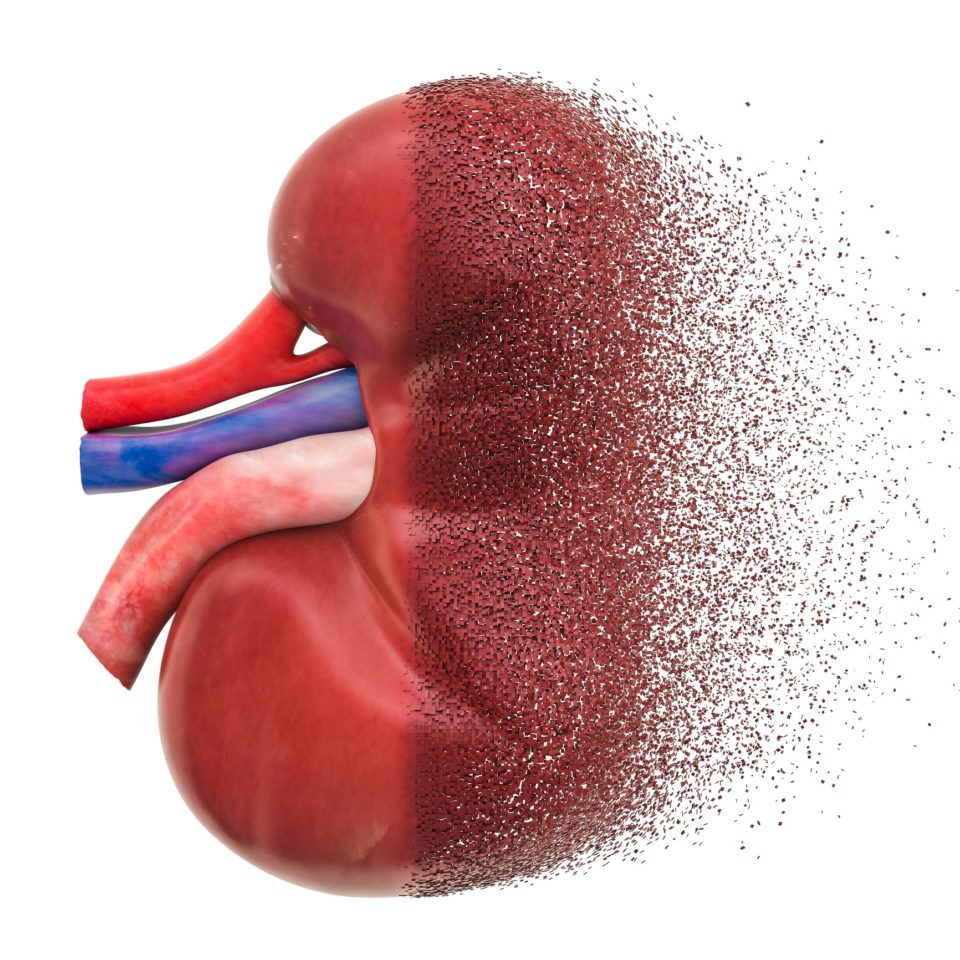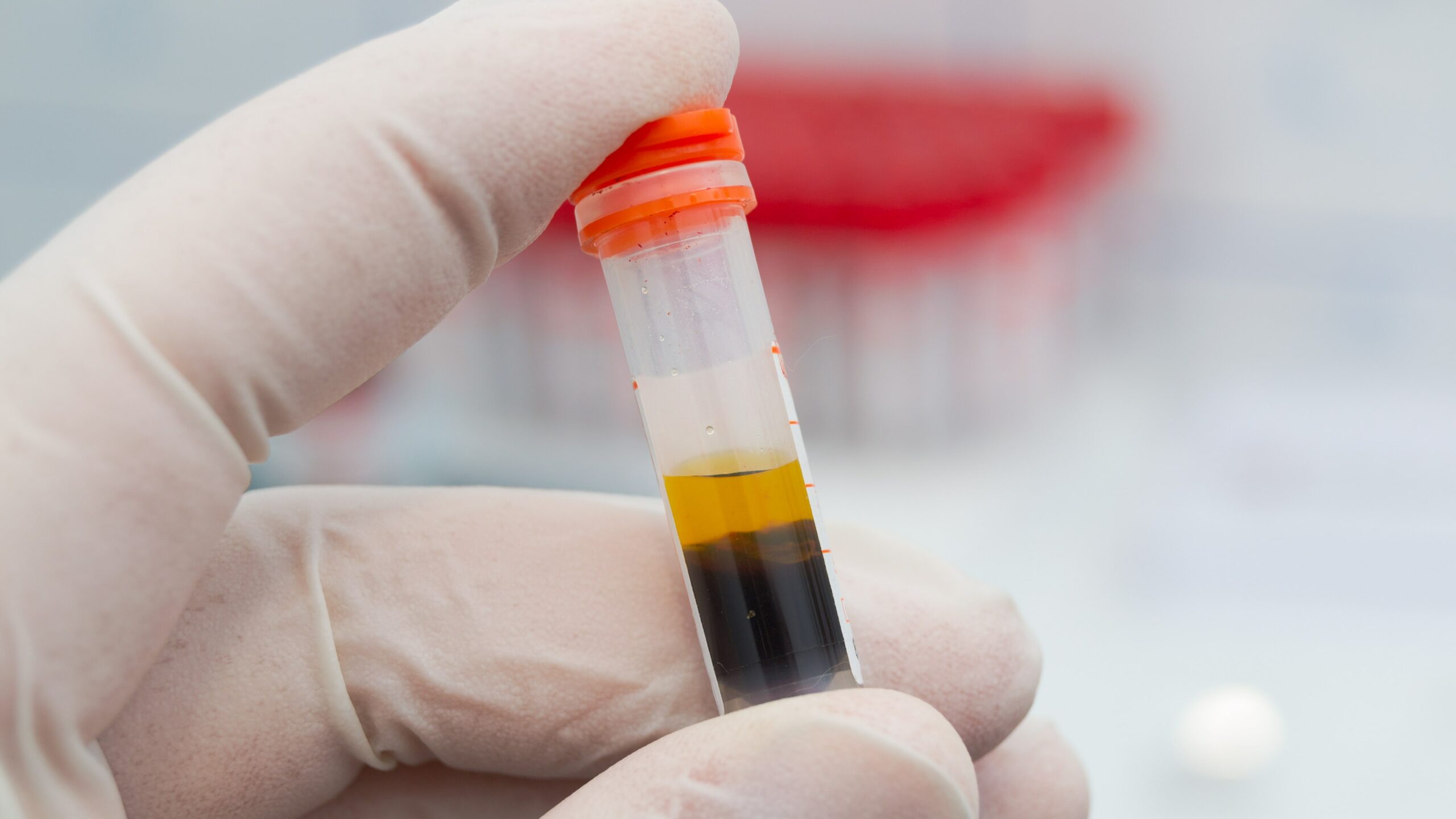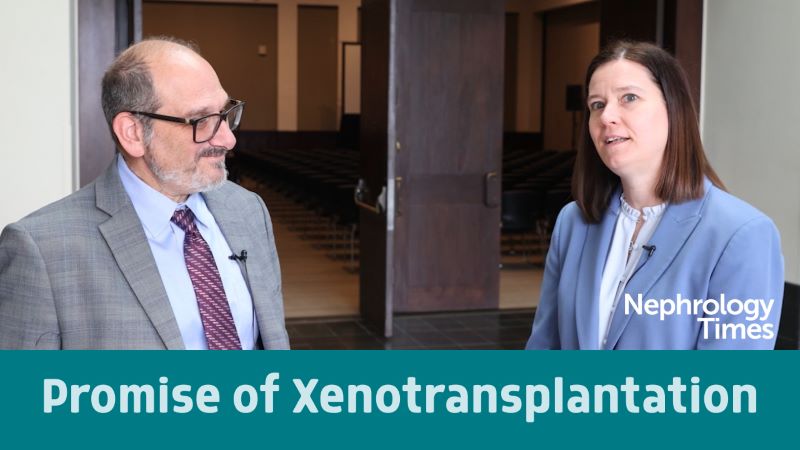
The optimal regimen for the treatment of acute and chronic antibody-mediated rejection (AMR) in kidney transplant recipients is unclear. A. Al Jurdi and colleagues conducted a single-center retrospective study to examine the outcomes among kidney transplant recipients with acute and chronic AMR who were managed with varying treatment regimens. Results of the study were reported during a virtual presentation at the 2021 American Transplant Congress. The presentation was titled Outcomes of Kidney Transplant Recipients with Antibody-Mediated Allograft Rejection: A Retrospective Study.
The study cohort included all kidney transplant recipients at the center with biopsy-proven acute or chronic AMR between January 2017 and September 2020. The primary outcome of interest was allograft loss at last follow-up. Secondary outcomes were differences in allograft survival between treatment regimens, and changes in estimated glomerular filtration rate (eGFR) and urine protein-creatinine ration (UPCR) at last follow-up.
The study included 53 kidney transplant recipients with AMR. Mean age of the cohort was 51 years, and 50% were female. The most common cause of end-stage kidney disease was glomerular disease, and 57% received living donor kidney transplants. The median number of HLA ABDR mismatches was four, and 38% had pre-transplant donor-specific antibodies. Immunosuppression regimens were anti-thymocyte globulin (61%), basiliximab (35%), and alemtuzumab (4%). Thirty-five percent of participants had acute AMR and 65% had chronic-active AMR. At the time of biopsy, mean eGFR was 32 mL/min/1.73 m2 and UPCR was 3.0 g/g.
Treatment regimens included pulse steroids (72%), intravenous immunoglobulin (64%), plasma exchange (51%), bortezomib (43%), and rituximab (4%). Some patients received more than one treatment.
At a median follow-up of 23 months, patient survival was 94% and death-censored allograft survival was 74%, mean eGFR was 28 mL/min/1.73 m2, and UPCR was 0.96 g/g. The risk of allograft loss was greater in patients with UPCR >3 g/g at time of biopsy compared with patients with UPCR <3 g/g (relative risk [RR], 4.3; 95% confidence interval [CI], 1.6-11.6). There was no difference in the risk of allograft loss in patients who received plasmapheresis compared with those who did not (RR, 0.97; 95% CI, 0.4-2.4). There was also no significant difference in the risk of allograft loss among patients who received bortezomib than in those who did not (RR, 0.8; 95% CI, 0.3-2.0). The risk of allograft loss was similar in patients with chronic AMR compared with those with acute AMR (RR, 1.3; 95% CI, 0.5-3.6).
“Proteinuria above 3 g/day is associated with increased risk of allograft failure in patients with AMR. Use of plasmapheresis or bortezomib was not associated with lower risk of allograft failure in kidney transplant recipients with AMR. Novel treatment regimens are needed to improve the outcomes of kidney transplant recipients with acute and chronic AMR,” the researchers said.
Source: Al Jurdi A, Goldfarb L, Lafargue M, Azzi A, Riella L V. Outcomes of kidney transplant recipients with anti-body-mediated allograft rejection: A retrospective study. Abstract of a presentation at the virtual 2021 American Transplant Congress (Abstract 1025), June 5, 2021.






 © 2025 Mashup Media, LLC, a Formedics Property. All Rights Reserved.
© 2025 Mashup Media, LLC, a Formedics Property. All Rights Reserved.